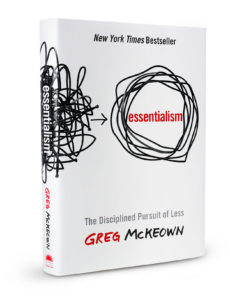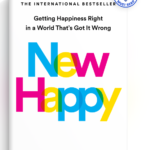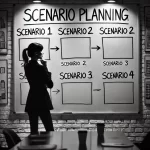I had coffee with a new friend I made this past year. He recently introduced me to Raleigh’s A Place at The Table, that was featured on the Today Show this week. Before leaving home, I scanned my bookshelf to see if I had a book that he needed to read. One book, Essentialism practically fell into my hands as I reviewed my collection. I had a hunch that this would be a nice gift to bring to my friend and had an instinct it might be of value to him.
Greg McKeown wrote essentialism. He talks about the disciplined pursuit of less — a beautiful mantra for business and our personal lives.
I don’t say this often, but this is a book I wish I wrote but am so grateful to have it to share with friends and family. Ripe with the wisdom of the role of simplicity, focus and being present, it has a clarity of thought that is rare in most books.
Have you ever said one of these phrases?
“I’m stretched too thin.”
“My plate is too full.”
“Someone else is controlling my day.”
“I can’t say no.
“I don’t know what to do first.”
Essentialism has a clear and straightforward premise that resonates with my world view.
We all need to do less stuff and be more focused on things that honestly matter. Greg preaches not doing essential things but adopting an essentialist way of being in the world. It is an important distinction.
To help illustrate the theme, Greg uses a wonderfully accessible metaphor for our bedroom clothes closet.
How many things do you own in your closet that you never wear?
If you were sincere, you probably wear 20% of the clothes hanging up or in your wardrobe. The other 80% are things that you say, “well if I lose a few pounds” or “maybe that disco style will come back” or “I can’t get rid of that shirt that I never wear for sentimental reasons.”
Can you prune out your work like you should clean out your closet?
We spend so much of our day and time on the non-essential. We stuff our work days filled without time to think or get deep into a few critically essential activities. Instead, we sit in endless meetings that repeat the same information over and over again.
Greg suggests saying no if you can’t say, Hell Ya! If you are on the fence, say no.
I’m one of those guys who keep a NOT to do a list of things that waste my time. It is a daily reminder of things that waste time, aren’t productive and distract me. Sometimes, I’ll even put a reminder on my calendar to stop looking at social media and call a friend.
I believe in the power of focus, especially for marketing professionals.
When asked to do something, I like to take a deep breath before responding and ask a few questions to understand why it is crucial. If it’s another tactical idea, I want to say, “I’ll put it on our list of things to consider” when we are thinking about executing at a tactical level.
But more often than not, with all due props to Nancy Reagan, I like to say no.
No. I can’t be distracted by your lack of planning. No, I can’t be distracted by an idea that just popped into your head and distracts me from what I deem essential. And especially no I won’t work on something you haven’t thought through enough that it warrants time on a calendar. No. I’m not going to waste time on something that we don’t have funds for and if we did would require me removing another project from the list.
Becoming an Essentialist
When you know where you are going and your vision is clear, you have crisp criteria to measure activities. Will this help me achieve the goals that I have carefully evaluated for our business? If no, then I shouldn’t be doing it. It would be nice to do, but I don’t want to interfere with my core efforts.
Often people feel obsessed about doing whatever is asked of them. They can’t say no like they can’t streamline the clothes in their closet. When everything has equal weight, nothing is of real value.
Are you focused on the disciplined pursuit of the essential?
There are many great practical ideas in this book which sets a clear course to help you find the essential activities that are right for you and your life. You need space to think. The problem is that we don’t take the time to discern among choices. We need to have habits that allow us to feel.
W.I.N.
There is an example of a coach who has an extraordinary winning record in high school rugby. Greg tells the story of WIN – the coach insists that the team is always winning. But in this case, WIN stands for WHAT’S IMPORTANT NOW. He gets the team focus on this moment; this plays not the error they just made.
The coach, Larry Gelwix, figured out how to keep his team in the present moment. He doesn’t want them worrying about next week’s game or the error they just committed. He wants them focused on what is essential now. Powerful. Essential. Wise.
Do you turn things off?
Do you schedule thinking time on your calendar? Are you so overscheduled that your day is 100% filled without room for the unexpected? Do you plan time to think or are you just so busy with so much non-essential work that you use it as an excuse only to react?
Reading this book is essential if you want to clear away the clutter of work that wastes your time and provides virtually nothing of real value to help you achieve your life goals. There are precise examples of what a non-essentialist does versus an essentialist. And they are instructive and valuable guideposts throughout this book.
My friend sent me a note telling me how much he is enjoying Essentialism. It reminded him of what’s important now.
Next time you meet a friend for coffee, see if you can bring a book to share. It isn’t essential, but it is an excellent way to give back and pay it forward.
Photo by Chris Benson on Unsplash
Want to discuss what is essential to your marketing? You can set up a time to chat with me about your marketing challenges using my calendar. Email me jeffslater@themarketingsage.com Call me. 919 720 0995. The conversation is free, and we can explore if working together makes sense. Try my new chat feature on my site if you have a quick question.




